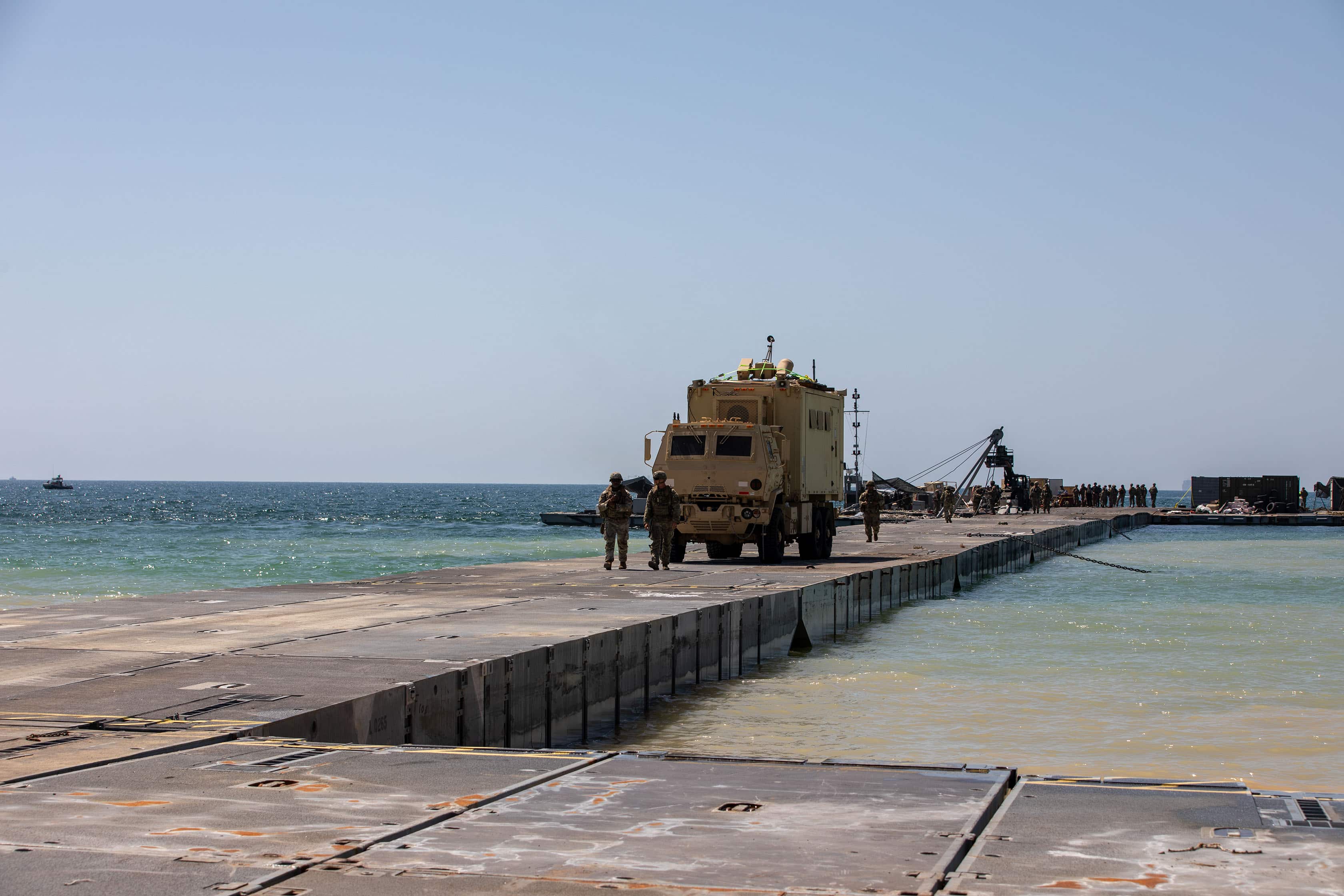U.S. Army soldiers from the 7th Transportation Brigade undertook a humanitarian mission to build a temporary pier to deliver aid to Gaza, but the project faced significant setbacks due to turbulent weather, security restrictions, and operational challenges. The mission, part of President Biden’s March 2024 directive to establish a maritime aid corridor, was designed to provide a rapid solution for delivering food and supplies to Gaza during the Israel-Hamas war. The Joint Logistics Over-the-Shore (JLOTS) system, costing $230 million, aimed to supplement land-based aid efforts but struggled to meet its objectives.
JLOTS began operating in May 2024, with the goal of transporting aid from Cyprus to the Gaza coast. Initially envisioned as a 90-day operation to help feed 1.5 million people, the pier operated for only 20 days before being decommissioned in July due to rough seas and security challenges. The system delivered enough aid to feed 450,000 people for one month, falling short of its intended reach. Security concerns, the blockade on Gaza, and adverse weather conditions hindered the mission’s effectiveness. The U.S. Agency for International Development (USAID) and the Department of Defense have since reviewed the operation, with a focus on lessons learned.
Despite its challenges, the pier project highlights the complexity of providing humanitarian aid in conflict zones. USAID expressed concerns about relying on the JLOTS system over more established land routes, but once the directive was issued, efforts were made to maximize the pier’s effectiveness. The operation underscored the need for more rigorous training in harsh conditions and raised questions about the balance between security requirements and aid delivery in high-risk environments.
Expanded Coverage:









